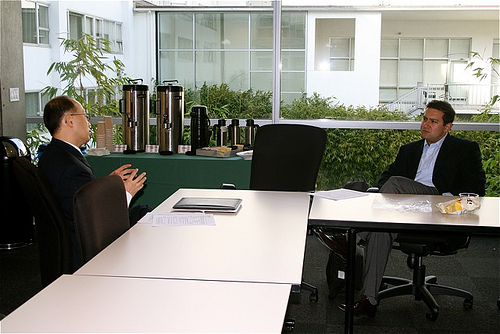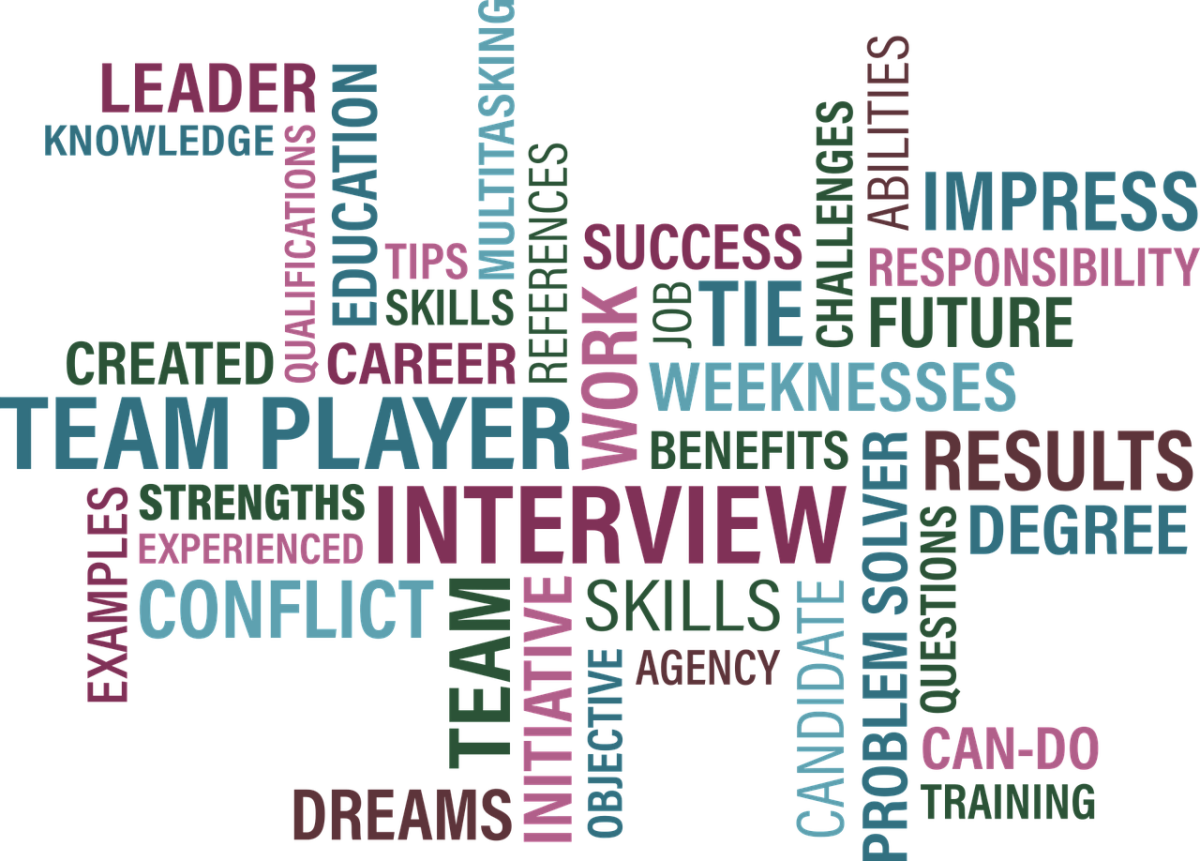- HubPages»
- Business and Employment»
- Employment & Jobs»
- Interviewing for a Job
How to Present Yourself at a Job Interview

1. Dress like your job depends on your outfit.
I’ll never forget the words of one motivational speaker at a grant writing conference I attended: “I was once hiring for an entry level position and it came down to a choice between two candidates. One was a young man who was a recent graduate from a very prestigious school in the area. He showed up in cargo shorts and a casual button down shirt and slouched in his chair throughout the entire interview. He was exceptionally qualified on paper, but in person he looked like he couldn’t care less.
The other candidate was a young man who was educated at an inner city school with an incredibly negative reputation. He was saving money to attend school by working as a cashier at the gas station across from his house. He came in wearing a conservative suit and tie, shook my hand, looked me in the eye and called me sir. He had a visual presentation ready to explain how he intended to boost my company’s sales if hired. Who do you think got the job?”
This story is just one of many real life examples of how “dress to impress” may be cliché, but certainly not out of touch. Now more than ever employers want to see that a prospective hire not only respects the position but their own appearance as well.
Don’t just settle for the most conservative piece of clothing in your office, either. A three piece suit may be appropriate for one corporate environment but it may give you the appearance of being out of touch or too stuffy in another. Go the extra mile to find out what is appropriate for the office environment you’re applying to work in. Ask the HR contact who scheduled you for the interview, or find out from another employee within the company or office. If Casual Friday is the norm all week long, consider dressing it up a bit for the interview. Neither overdressing nor underdressing is ideal, but one indicates disrespect and that’s a risk you can’t afford as an interviewee.
2. Look the interviewer in the eye.
Avoiding eye contact sends a message to the interviewer that you have something to hide or be ashamed of, even if they’re not consciously aware of it. They might not know why, but they just won’t feel confident in you and that’s a difficult first impression to shake. Don’t obsess over maintaining eye contact to the point where your other body language becomes stiff, but try to be aware of it throughout your normal conversation.
TIP: A common trick is to focus on a point between and slightly above the other person’s eyes. This gives the impression of eye contact without an uncomfortable, piercing stare.
Mirroring body language makes people like you.

3. Mirror their body language.
This is one of those tips that work only to a certain degree. One of the first things any body language workshop or class will tell you is that it’s a well-known psychological trick that we like people who resemble us. Mimicry is a great way of subtly endearing yourself to the other person without them being aware of it. In fact, it’s even a sign of physical attraction to mirror the other person’s body language and facial expressions. Many of us unconsciously take a sip of water at the same time as a date sitting across from us.
Be careful, though. Overt mimicry runs the risk of getting noticed and creating an extremely awkward situation. To avoid detection, try mirroring a few simple gestures, such as a nod or laughing at a joke in a similar tone to the interviewer. Quick studies can also pick up on the other person’s sentence structure and grammatical quirks. You never know, you might curry favor by something as silly as bonding over a similarly off pronunciation of aluminum.
4. Ask questions about the company - but not too many.
Asking an intelligent, relevant question about the position or company shows that you are both knowledgeable and engaged. However, asking a question for the sake of asking a question will come off as contrived. Some people suggest having a list of questions prepared before an interview, but I tend to advice against it. In my own experience, interviewees tend to rehearse these pre-prepared questions and, in a panic, inject them at unnatural points in the conversation.
Instead, it’s better to pick a few topics to thoroughly research before the interview. Have an imaginary conversation with the mirror or a friend and get practice responding to and asking questions that come up in an organic way. This will be much better preparation for the actual interview than a list of questions on a notecard.
How to score a great job.

5. Be honest - but not brutally so.
Yes, employers want to know that you’re aware you have weaknesses, but they don’t want a sob story, either. Confidence sells, and interviews are neither the time nor the place for false humility. If you’re the best at a certain marketing tactic or software program then say so – but be prepared to back up your assertions with facts.
Many interviewees make the mistake of thinking their prospective employers will be impressed by self-deprecation. Team spirit is an asset in an employee, but no employer wants to hire someone who’s content to stay at the bottom of the pyramid. When it comes to the ubiquitous question of, “What area are you weak in?” or some other version, a good answer will focus on a double-edged weakness.
For example: “I tend to be a perfectionist, and sometimes it’s easy to lose sight of the big picture in an effort to get all the details right. But, I’ve found a way to balance that tendency out by taking a moment to pause after each hour of work and ask myself questions about the overall goals I’m hoping to achieve with each project.” You’re admitting a weakness, myopic tendencies, while explaining how you’ve found a way to compensate and even turn it into a strength. The only right answer to these types of questions contains two parts: 1, the weakness and 2, how you’re turning it into a strength.
6. Use concrete examples to showcase your skills.
Don’t just sit there and talk about what a great communicator or task manager you are. Showing is much more powerful than telling, in today’ world more than ever. Interviewers want to hear how you’ve demonstrated your claimed skills on the job. After all, they’ve (hopefully) read your resume. Don’t simply rehash words on a page; an interview is your chance to make those words come alive.
Summary
With these tips you should be well on your way to a successful job interview. Remember, even if things don’t go perfectly, you can still land the job. Confidence, honesty and some good old fashioned common sense go a long way in compensating for an awkward pause and other small mistakes. Do you have any additional interview tips? Ever put any of these to use? Share your stories in the comments below!








